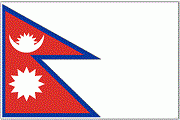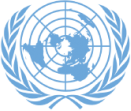Statement by His Excellency Mr. Amrit Bahadur Rai, Permanent Representative and Ambassador the United Nations, at the General Debate of the Third Committee of the 76th Session the United Nations General Assembly
Friday , 1 October 2021
Time Limit: 6 Minutes
Mr. Chair,
At the outset, I congratulate you and other bureau members on your election as the chair and bureau members of this important Committee.
I assure you of my delegation’s full support and cooperation in the deliberations of the Committee.
I align my statement with the statement of the Group of 77 and China.
Mr. Chair,
Almost two years into the COVID-19 crisis, our fight against the virus is still inconclusive.
It is attacking the societies at its core exposing humankind’s vulnerabilities not only by severely impacting people’s lives and livelihoods but also exposing fragility of our health and social protection system.
It has deepened existing inequalities with serious threat to reverse the gains made on socio-economic development, people’s well-being and protection and promotion of human rights.
Achieving SDGs and ensuring a just and equal society for all is now moving into the distance.
It has further marginalized the vulnerable groups such as women, girls, children, disabled and indigenous persons, racial and religious minorities, and other disadvantaged communities.
This could lead to a lost decade for development.
We must act now to build a recovery that benefits all.
At this stage of painful global struggle, we must unite to ensure universal and equitable access to COVID-19 vaccines as a global public good.
Mr. Chairperson,
Nepal is firmly committed to protecting and promoting the human rights of its people under all circumstances.
We view that all human rights are universal, indivisible, inter-related, interdependent and mutually reinforcing.
Human Rights are the bedrock of our Constitution based on the universally recognized core values such as equality, non-discrimination, justice and rule of law. These are duly internalized into our national laws, policies, and practices.
Similarly, the rights- based approach is at the core of our development endeavors.
The National Human Rights Commission of Nepal is competent to launch inquiries and investigations into alleged human rights violations, and can recommend legal or departmental action against human rights violators. The independent judiciary, other Constitutional Commissions, civil society and the media are integral parts of a system to safeguard human rights.
In recent years, Nepal has made significant progress in achieving gender equality and empowerment of women. The law has made it mandatory to have women’s participation in federal and provincial parliament with 33 percent and at local level with 40 percent.
Adhering to the Alliance 8.7, Nepal has committed to ending all forms of child labour by 2025.
Right to representation of the indigenous and marginalized people in the public service is guaranteed by law.
We have devised plans and policies to protect the rights of the persons with disability.
We have put in place various social security schemes such as monthly cash payment to elderly, single women, persons with disability, health insurance for elderly people, scholarships for children from Dalit and marginalized communities, free basic education up to secondary level-school.
Safety, security and wellbeing of the migrant workers remain our highest priority. We call for effective implementation of the Global Compact for Safe, Orderly and Regular Migration to make migration work for all.
Mr. Chair,
The Constitution of Nepal guarantees religious freedom as a fundamental right. Nepali society is a rainbow of multi-religious, multi-ethnic and multilingual communities living in harmony with a strong sense of unity in diversity.
Discrimination based on race, religion, cast, class, and gender is outlawed in Nepal, though we still have to walk a long distance to eliminate these vices.
The Constitution of Nepal guarantees equal rights to sexual minorities and ensures that no one is discriminated against based on their sexual orientation and gender identity.
As a member of the UN Human Rights Council for the second consecutive term, Nepal continues to add value to promote human rights with an objective and apolitical approach.
To conclude, Mr. Chair, the COVID-19 pandemic knows no borders. Everyone, everywhere is affected. We need to ensure vaccines for everyone and we need to ensure people’s human rights are protected, social security is guaranteed, and cultural freedom is safeguarded at these trying times.
Let us unite and work together to safeguard human dignity and promote well-being of the people.
I thank you.


